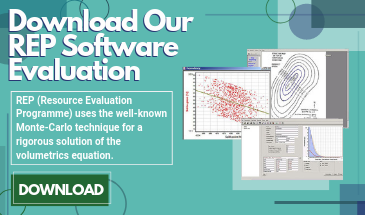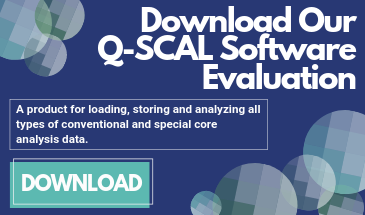Blog
Risk & Uncertainty In Hydrocarbon Exploration

Searching for oil and gas is a risky business. Before you make a discovery the range of possible outcomes is pretty big, and the biggest issue is whether you’ll actually find any at all. If and when you do, there’s still a lot of uncertainty over how much you’ve really discovered.
As time goes by, you maybe drill more wells, get more data, decide how the field may best be developed. In theory, the uncertainty decreases. Often it does not, and the complexity of the sub-surface – rarely a straightforward environment – starts to impact how your field behaves.
Like I said, searching for oil and gas is a risky business, and the terms “risk” and “uncertainty” are part of every explorer’s vocabulary. How best to manage them?
First off, you have to decide what you mean by the two terms. Of course, much intellectual horsepower has been expended on doing – or trying to do – exactly this, because there is nothing new in either risk or uncertainty. But let’s not overcomplicate it…
One useful definition of risk is that it is the chance of failure, where failure is drilling a dry hole leading to no oil or gas – or none that can be recovered from the reservoir and delivered up the wellbore to the surface, at any rate.
If you do find some, uncertainty is a description of what you are not sure of in terms of the volumes you’ve discovered down there, the volumes you can recover and sell up here, and the difficulty you may or may not have in recovering them. (You probably won’t have too much problem in selling oil, but if you’ve got gas it might be a bit harder because you need a market, and you’ve got to get the gas to that market – gas is somewhat harder to transport than oil.)
But oil is a business, and oil and gas companies need to make money. So you will note a few obvious points:
1. It’s not enough just to discover oil or gas. You got to discover enough of it to make a commercial project, to pay for all the wells and production facilities, and all the ongoing costs of production. So, risk includes not only the geological issues (such as ‘has oil been generated? Is there a nice trap it can sit in? Rock to store and release it into the wellbore?’) but also commercial issues such as outgoing costs and product prices. And wells are not cheap to drill – you will need to spend quite lot of money just to answer the question, ‘is there a commercial quantity of hydrocarbon?’ So, risk also includes penalty – the cost of failure.
2. Commercial issues also impact the uncertainty. In most cases (but not all, by any means) the uncertainty is due to the fact that the volume estimates are based on imprecise – often very murky – geological data. Oil companies faced with a difficult development decision often choose to get more of it: a new well to see if they can resolve the big issues, more surveys, yet another expert study. They sometimes do this just to delay making the big decision, without regard to the value of the information they are paying good money to get.
But even if they’ve done a pretty good job of working out the amount that’s in the reservoir (the geological question) they still have to work out how much they can get out, which is engineering. Any engineer will tell you that if you spend more money you can get more out, and more quickly. More wells to produce it, more water injected to keep the pressures up, more interventions (like fraccing shale gas wells) to increase the production and drain more of the reservoir. But all of these come at a cost, and are subject to the laws of diminishing returns. How far do you go? It’s a question of money.
In short it’s not that simple, and it’s definitely multi-disciplinary. Geophysics, geology, petrophysics, reservoir engineering, production engineering, economics, business strategy – they are all involved.
So, if you want to want to mitigate the effects of risk and uncertainty the first requirement is to make sure all these people are involved. Maybe not all at once and all together, but definitely all of them at some point, and some of them at all points. Peer group reviews are common in the industry, but not universal, and often restricted in disciplines. They really work when properly run.
The second requirement is technical honesty. Everyone knows that bias affects everything we do, and one extremely common bias is to skew the interpretation of data towards a desired outcome.
But nature is uncompromising, and if you start to try to mould it to your hopes you are in deep trouble – it won’t play along. You have to make every effort to avoid fooling yourself; and another advantage of peer group sessions is that it allows others to note and correct your bias.





